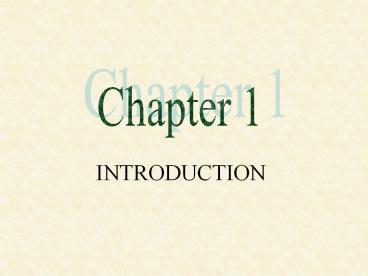INTRODUCTION: Chapter I - PowerPoint PPT Presentation
Title:
INTRODUCTION: Chapter I
Description:
Culture: Social heritage of a people. ... simultaneously comparing DIFFERENT groups of persons varying in ... Ethical Standards for Human Development Research ... – PowerPoint PPT presentation
Number of Views:18
Avg rating:3.0/5.0
Title: INTRODUCTION: Chapter I
1
INTRODUCTION
Chapter 1
2
Development A Definition
- The orderly and sequential changes that occur
with the passage of time as an organism moves
from conception to death.
3
The Major Concerns of Science
- 1. Describe
- 2. Explain
- 3. Predict
- 4. Control
4
Major Domains of Development
- 1. Physical
- 2. Cognitive
- 3. Emotional -social
5
(No Transcript)
6
The Processes of Development
- 1. Growth
- 2. Maturation
- 3. Learning
7
Context of Development
- ECOLOGICAL APPROACH (Bronfenbrenner)
- 1. Microsystem
- 2. Mesosystem
- 3. Exosystem
- 4. Macrosystem
8
(No Transcript)
9
Timing of Developmental Events
- Normative Age-graded Influences
- Normative History-graded Influences
- Non-normative Life Events
10
(No Transcript)
11
Cultural Variability
- Culture Social heritage of a people.
- Learned patterns for thinking, feeling and acting
transmitted from one generation to the next.
12
Changing Conceptions of Age
- Infancy
- Childhood
- Adolescence
- Adulthood
- Old age
13
(No Transcript)
14
Connecting Historical Areas of Concern
- Turn of the 20th Century
- The 1950s and 1960s
- Contemporary Issues
- Back to the Future
15
The Nature of Developmental Research
16
The Scientific Method
- Select a researchable problem
- Formulate a hypothesis
- Test the hypothesis
- Draw conclusions about the hypothesis
- Make the findings of the study available to the
scientific community
17
Research Longitudinal Method
- Scientists study the SAME individuals at
different points in their lives.
18
Cross-Sectional Method
- Investigates development by simultaneously
comparing DIFFERENT groups of persons varying in
age.
19
Sequential Methods
- Measuring more than one cohort over time.
20
(No Transcript)
21
Experimental Method
- Experiment Study in which the investigator
manipulates one or more variables and measures
the resulting changes in the other variables to
attempt to determine the cause of a specific
behavior
22
Experimental Method
- Independent Variable
- Extraneous Variables
- Experimental Group
- Control Group
- Dependent Variable
- Limitations
23
(No Transcript)
24
Case-Study Method
- The accumulation of developmental information of
a single individual.
25
Social Survey Method
- Researchers ask questions to a sample of
individuals who are representative of the
population of individuals likely to be affected - Random sampling
26
Naturalistic Observation
- Researchers intensively watch and record behavior
as it occurs. - Modifications
- a. Time Sampling
- b. Event Sampling
27
Cross-Cultural Studies
- Researchers compare data from two or more
societies and cultures.
28
Research Analysis
29
Correlational Analysis
- Degree to which two or more behaviors are
associated with each other - Does not prove causation
- Can be used for predictive purposes
30
Correlation Coefficient
- Numerical expression of the degree or extent
of relationship between two variables or
conditions.
31
(No Transcript)
32
Ethical Standards for Human Development Research
- Respect and concern for the dignity and welfare
of participants - Informed consent
- Right to privacy































